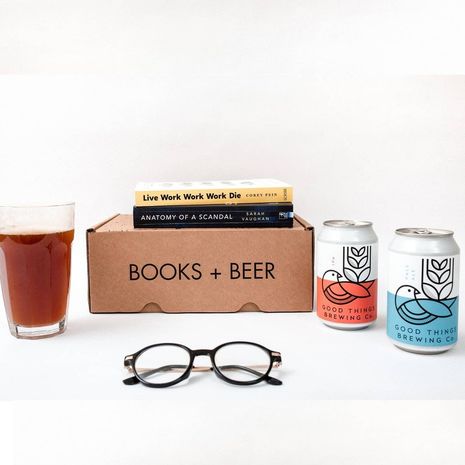Ethics and Aesthetics: Subscription Boxes of 2021
Sofia Johanson looks at the surge in popularity of subscription boxes, particularly at those that boast good aesthetics and an ethical outlook, and examines exactly what they offer – and whether it’s worth it.
With the Pret subscription causing queues in Michaelmas and Rhianna’s underwear filling up every one of my Instagram ads, it is clear that subscriptions are in vogue. When you think of subscriptions, Amazon Prime, Netflix and Youtube channels probably come to mind. However, smaller companies are now offering ‘box’ subscriptions, which are rapidly gaining customers. Why this sudden rise in popularity?
“With the beginning of a new year, people are always looking to make a change to their lives, with no movement better embodying this than Veganuary.”
Aesthetic is crucial in the Instagram-era, and packaging and design are of paramount importance, as with the wittily-named Who gives a crap? subscription, which delivers bamboo toilet paper in beautifully wrapped rolls. Ohne is an unbelievably aesthetic organic tampon subscription service, offering a monthly delivery of sanitary products as well as CBD products for relieving tension and a vegan dark chocolate bar designed to cure period-induced munchies. Also prettily-packaged, is Books plus Beers, where subscribers can choose between non-fiction and crime novels and, along with 2 books, they will receive two cans of craft beers each month (the perfect Christmas gift for dad, if only I'd researched this article in December!)
Other than aesthetic, these companies have something else in common; they all donate a significant amount of their profit to charitable causes, satisfying our need to feel good about our (somewhat pretentious) purchases. Who gives a crap? donates 50% of their profit to help build toilets for those without, while Ohne is working to end period poverty in Zambia and Books plus Beers donates to male mental health charities.

With the beginning of a new year, people are always looking to make a (usually well-intended, but eventually short-lived) change to their lives, with no movement better embodying this than Veganuary. The Vegan Kind offers a ‘lifestyle’ box which contains snacks, treats, recipe cards and a surprise gift, all for only £13.15 per month. They also offer a beauty box full of animal-friendly products, competing against the thousands of cosmetics subscription services that deliver all over the UK. Most of these cosmetics services send out sample-sized beauty products to their customers so that they can try out different brands before they choose the full-size item. Birchbox, the UK’s biggest beauty box subscription service has over 4 million customers worldwide, who can personalise their profile to get products that will best suit their colouring and makeup style.
The desire to try something new is not the only reason why subscription services are garnering popularity as we enter 2021. There are many possible reasons why people began to opt for a subscription over the traditional mode of shopping.

Obviously, there is that whole pandemic thing. People still want the gratification of ‘stuff’ – with the shops closed, online shopping has exploded, exemplified by Asos’ soaring profits in comparison to store-based Topshop’s struggle to stay afloat. Moreover, in days when we’re stuck in our homes, any delivery sparks excitement, and a monthly parcel certainly provides something to look forward to. So, unlike most companies, online subscription services have Covid-19 to thank for a lot of their business.
Also, there’s cost. For example, one month of a Birchbox subscription is £13 for five premium makeup products, while The Vegan Kind offers all its snacks below RRP. In fact, nearly all of the subscriptions are cheaper than if you bought the products individually – but of course, you never need all the products within them, so does it make more financial sense simply to get the products you like, when you want them?
It’s worth mentioning again the ethical practices of these subscription companies as a factor in their popularity. We love the comfort of knowing that our purchases are doing good in the world, perhaps because it reduces the guilt that we have just spent money on things we don’t need. To take a slightly less cynical approach, people are more aware of the social and environmental impact that companies can have, and most are beginning to understand that we need to prioritise ethics over cost.
So, there’s a multitude of reasons why these subscription services are so ‘in’, and it’s mainly due to the fact that the way we shop and think about purchases is changing – largely for the better. Awareness of the damaging effects of fast fashion (principally that returns are doomed to landfill), and the problems with non-recyclable packaging are only just coming to the fore. Yet, hopefully, as more and more people recognise the need to shop sustainably, the huge revenues brought in by giants like Amazon can be shared among smaller, more ethical companies that are an active force for good in the world.
 Comment / Plastic pubs: the problem with Cambridge alehouses 5 January 2026
Comment / Plastic pubs: the problem with Cambridge alehouses 5 January 2026 News / Cambridge businesses concerned infrastructure delays will hurt growth5 January 2026
News / Cambridge businesses concerned infrastructure delays will hurt growth5 January 2026 News / Cambridge academics stand out in King’s 2026 Honours List2 January 2026
News / Cambridge academics stand out in King’s 2026 Honours List2 January 2026 News / AstraZeneca sues for £32 million over faulty construction at Cambridge Campus31 December 2025
News / AstraZeneca sues for £32 million over faulty construction at Cambridge Campus31 December 2025 Interviews / You don’t need to peak at Cambridge, says Robin Harding31 December 2025
Interviews / You don’t need to peak at Cambridge, says Robin Harding31 December 2025










